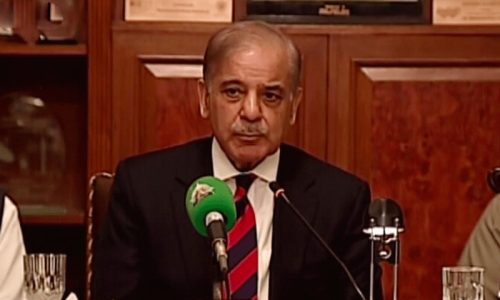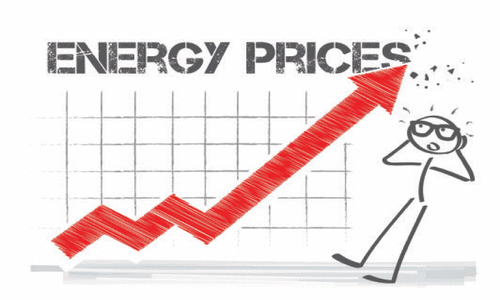Prime Minister Shehbaz Sharif on Tuesday announced a three-month relief period for lifeline consumers of electricity whose consumption remains below 200 units per month.
A post on the X account of state broadcaster PTV News said: “The government will give a discount of Rs50 billion to the electricity lifeline consumers in July, August and September. For three months, 25 million consumers of the country will benefit from the government’s relief.”
It added that the move would benefit “94 per cent of the country’s domestic consumers” of electricity.
Addressing a press conference in Islamabad, PM Shehbaz said the package would provide relief of up to Rs7 per unit to around 25m domestic consumers falling in the protected category for three months till September.
“Today, an amount of Rs50bn has been allocated to provide a relief of Rs 4-7 per unit as a concession to our protected category consumers using up to 200 units a month for a three-month period from July to September.
“This will benefit around 25m domestic power consumers which constitute around 94pc of the total consumer base,” the prime minister said.
He said that the federal government had scraped the said amount from its development budget to realise its commitment to public relief, contrary to the “hollow claims” of previous governments.
Shehbaz also assured the people of further relief as the government achieved fiscal space consequent to its ongoing measures of taxing the elite class, expanding the tax net, closing non-performing entities and plugging financial leakages.
He told the gathering of federal ministers and senior government officers that during its previous 16-month stint, the coalition government saved the country from default by putting its politics at stake.
PM Shehbaz said the government was going to sign a three-year programme with the International Monetary Fund (IMF) and had also taken it on board about the relief announced for the domestic power consumers.
He said the federal and Balochistan governments had reached an agreement a day ago to solarise around 28,000 tube wells in the province to save annual Rs80-90bn as the consumers were defaulting payment on power bills.
“The same model will be launched in other provinces as around a million tube wells are being run on imported oil having a financial implication of $3.5bn on foreign exchange,” he said and told the participants that a business model was being prepared in this regard.
PM Shehbaz said new taxes were imposed on the real estate sector in the annual budget to generate around Rs100bn and that the salaried class was justified to protest the tax burden.
“The time has come for the elite class to pay back to the country,” he remarked.
“These are the challenges and parasites which are eating up the country. If we have to make the country prosper, we will have to get rid of loans and begging. The only way is to make efforts and make the elite class pay back to the country,” he added and also called for exploiting the immense potential in agriculture, information technology, mining and mineral sectors.
Amid public outcry and potential political backlash, the government had decided to step back from about 51pc increase in electricity rates it had approved last week for so-called protected consumers by meeting a ‘prior action’ required by the International Monetary Fund (IMF).
On the instructions of the prime minister, a revised summary was planned to be urgently run through the federal cabinet that only last week cleared the massive tariff hike, including for ‘protected consumers’.
According to sources, PM Shehbaz had been alerted by some quarters, other than the power division, that consumers already had a lot of pent-up anger following accumulated bills in view of public holidays around Eidul Azha, coupled with higher consumption in hot and humid weather. They had already expressed their wrath through violence against officials of distribution companies in some areas.
Before flying to Quetta from Islamabad, the prime minister had issued instructions on Monday morning to modify the tariff increase summary already submitted to Nepra and exempt protected consumers from the hike. By the evening, the power division had circulated the summary as instructed. The resultant revenue gap of about Rs50bn would be covered by the government through subsidies and innovative tariff setting.
The tariff hike has to become effective from July 1, 2024 for all ex-Wapda distribution companies (Discos) and K-Electric as part of the IMF’s “prior action and structural benchmark”.
The tariff adjustment summary approved by the federal cabinet through circulation had envisaged raising the tariff by 51pc for “protected consumers” using up to 100 units per month and 41pc for protected consumers using up to 200 units per month. More than 15.5m consumers fall into this category, including 10.11m in less than 100 units and 5.5m in 101-200 units who remain below this threshold and could come on roads anytime.
But those unfortunate who cross 200 units even once in six months fall in the “unprotected category”.














































Dear visitor, the comments section is undergoing an overhaul and will return soon.